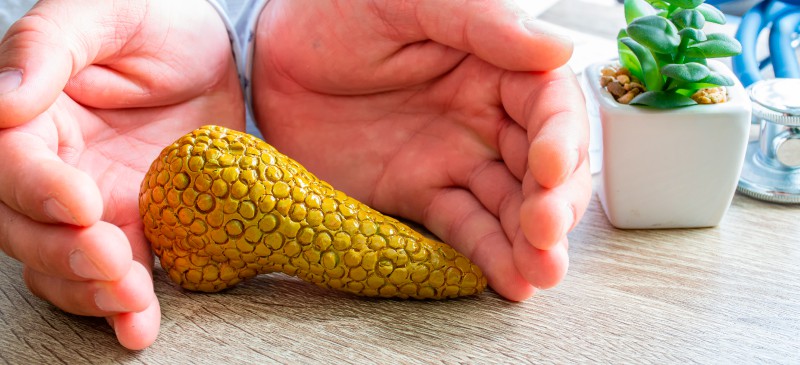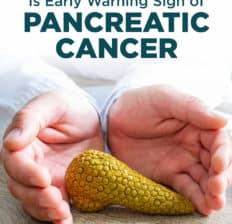This Dr. Axe content is medically reviewed or fact checked to ensure factually accurate information.
With strict editorial sourcing guidelines, we only link to academic research institutions, reputable media sites and, when research is available, medically peer-reviewed studies. Note that the numbers in parentheses (1, 2, etc.) are clickable links to these studies.
The information in our articles is NOT intended to replace a one-on-one relationship with a qualified health care professional and is not intended as medical advice.
This article is based on scientific evidence, written by experts and fact checked by our trained editorial staff. Note that the numbers in parentheses (1, 2, etc.) are clickable links to medically peer-reviewed studies.
Our team includes licensed nutritionists and dietitians, certified health education specialists, as well as certified strength and conditioning specialists, personal trainers and corrective exercise specialists. Our team aims to be not only thorough with its research, but also objective and unbiased.
The information in our articles is NOT intended to replace a one-on-one relationship with a qualified health care professional and is not intended as medical advice.
Connection Between Diabetes and Pancreatic Cancer
March 15, 2022

Pancreatic cancer is considered to be one of the most deadly of all cancers. (Only one in 10 diagnosed with this condition survives for five+ years.) Not only is it very difficult to treat, but it’s hard to screen for and to detect in its early stages.
Although pancreatic cancer is a relatively rare type of cancer compared to others, such as skin or breast cancer, it’s expected to remain one of the most lethal cancers in the decades to come. This is why researchers are determined to find more early warning signs in hopes of stopping this type of cancer from progressing.
In 2022, a study uncovered an association between type 2 diabetes and pancreatic cancer. Type 2 diabetes affects more than 37 million Americans (about one in 10).
How are the two connected? Let’s find out below.
Study: Diabetes an Early Warning Sign of Pancreatic Cancer
It’s been known for tears that pancreatitis and diabetes are both risk factors for pancreatic cancer. In addition, researchers have recently learned that pancreatic attacks among diabetics seem to be even riskier.
A 2020 study conducted at the University of Auckland School of Medicine in New Zealand followed 139,000 people for 18 years. Participants involved in the study either had type 2 diabetes or pancreatitis (an inflammation of the pancreas) or both conditions at the same time.
Findings from the study showed that adults who developed diabetes after an attack of pancreatitis were seven times more likely to get pancreatic cancer compared to adults with type 2 diabetes who did not develop diabetes after pancreatitis.
Another study conducted in 2008 uncovered that people who are diagnosed with type 2 diabetes are between six and eight times more likely to be diagnosed with pancreatic cancer within three years of their diagnosis compared to the general public.
Why is pancreatic cancer more prevalent in diabetics?
Diabetes affects the pancreas, which is a small organ tucked in the upper abdomen behind the stomach. The pancreas contains specialized cells that produce insulin, a hormone that regulates blood sugar (glucose) levels.
While there’s still more to learn about the link between type 2 diabetes and pancreatic cancer, scientists now believe type 2 diabetes may develop in some people who have cancer “hidden” in the pancreas. In other words, dysfunction of the pancreas due to cancer may trigger changes in insulin production and diabetes.
Diabetes and pancreas issues also share many of the same risk factors, such as heavy alcohol consumption, smoking, a poor diet and obesity.
Recently, researchers have also identified a gene, called UCP-1, that seems to help predict whether someone with diabetes will develop pancreatic cancer.
Other Signs and Symptoms to Look Out For
Type 2 diabetes can cause a range of symptoms that usually develop over the course of several years. While the condition is worsening, many people are unaware that they have diabetes and therefore fail to get diagnosed or treated.
If you’ve developed type 2 diabetes or prediabetes (higher than normal blood sugar level), which occurs before type 2 diabetes, you may not have any symptoms at all, or you may experience some.
Type 2 diabetes symptoms can include:
- Weight changes
- Changes in appetite
- Increased thirst
- Frequent urination
- Fatigue
- Blurred vision
- Poor wound healing
While type 2 diabetes is a serious health condition that can sometimes be life-threatening, it’s not as deadly as pancreatic cancer in most cases.
Pancreatic cancer is often “silent but deadly” because it doesn’t tend to cause symptoms until it progresses. When it is detected at an early stage it’s usually because someone had an unrelated abdominal scan or surgery done, and then the cancer was found.
Anther tricky thing about pancreatic cancer symptoms is that they’re commonly “nonspecific,” meaning they can be attributed to other conditions.
While they’re not always obvious, signs and symptoms of pancreatic cancer — which can start developing 18 to 36 months before diagnosis, can include:
- Stomach pains/abdominal discomfort
- Constipation
- Weight loss
- Fatigue
- Muscle loss and weakness
- Changes in blood lipids (cholesterol and triglycerides)
- Increased body temperature
If you have chronic pancreatitis — which can create scar tissue and make it difficult to produce insulin properly and absorb nutrients — you’ll likely have some symptoms. Chronic pancreatitis symptoms, which is a big risk factor for pancreatic cancer, include:
- Nausea and/or vomiting
- Weight loss
- Diarrhea
- Digestive upset
- Oily or fatty foul-smelling stools that float
- Clay-colored or pale stools
- Deep abdominal pain and tenderness that radiates to the back
- Glucose intolerance
How to Lower Risk of Diabetes and Pancreatic Cancer
To help protect yourself from pancreatitis, pancreatic dysfunction, diabetes and potentially cancer, experts recommend these lifestyle changes (even if you already take insulin or other diabetes medications):
- Eat a healthy diet from as young an age as possible. A pancreatitis diet and one that protects against diabetes emphasizes whole, unprocessed foods with lots of antioxidants, fiber, vitamins and minerals (think: veggies, fruits, herbs, fish, whole grains, olive oil, etc.).
- Limit or avoid processed foods with added sugar, refined grains and poor-quality oils/fats.
- Maintain a healthy BMI, since obesity interferes with metabolic health and insulin sensitivity. This is very important for reversing diabetes naturally.
- Stay active, since exercise helps promote insulin sensitivity and can help protect against obesity.
- Quit smoking and using tobacco. (Smoking doubles the risk of many forms of cancer.)
- Avoid excess alcohol consumption, which can cause inflammation of the pancreas and other organs.
- Protect yourself against workplace/environmental exposure to certain chemicals, like those used in dry cleaning and metal work industries.
- Keep up with regular doctors’ visits and exams, especially as you age. About two-thirds of pancreatic cancer cases occur in those 65 and older. If you have a family history of cancer or inherited genetic mutations in the BRCA1 or BRCA2 genes, be sure to mention this to your doctor.
When visiting your doctor for annual exams, discuss whether your blood glucose level has been rising, especially if it’s happening rapidly and is difficult to control. If you’ve recently been diagnosed with type 2 diabetes and are starting medication, be on the look out for warning signs of pancreatic-related issues.
Conclusion
- What is the relationship between pancreatic cancer and diabetes? Both of these conditions affect the pancreas (an organ that produces the hormone insulin, which regulates blood sugar levels).
- A recent study found that pancreatitis significantly increases the risk of pancreatic cancer in individuals with type 2 diabetes.
- It’s speculated that some people may develop diabetes after pancreatitis attack (inflammation of the organ) because they actually have hidden cancer growing in the pancreas.
- To help limit your risk for both diseases, eat an anti-inflammatory diet, maintain a normal BMI, exercise, quit smoking and drinking lots of alcohol, and discuss your family history and genetic susceptibility with your doctor.









